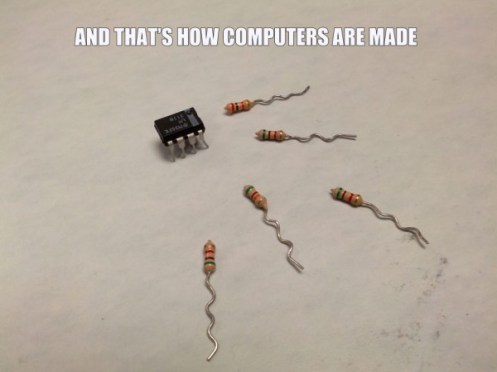-
Home / The $1,000 CPM — Medium
Advertising is a kinda shitty model. It’s very exciting that we’re moving beyond it.
About technology
 technologyhttps://valme.io/c/technologyc_prompt
technologyhttps://valme.io/c/technologyc_prompt"I'm doing a (free) operating system (just a hobby, won't be big and professional like gnu) for 386(486) AT clones." - Linus Torvalds, father of Linux on his hobby that ended up changing the world of technology


This is a great article, and describes the model that valME is pursuing.
Exactly. To use the author's words, as content creators, the world we should want to live in is one where we can reap the direct benefits of our content, rather than just the indirect pittance that advertisers throw our way. And he proves in the article that this model works.
Content creators don't need a ton of money to make this work. But, in the current model, they need a major amount of traffic with the expectation of more advertising views and clicks:
Right again (excluding his comment about this being antithetical to capitalism, as this approach is completely consistent with capitalism).
If we want to see higher quality, we must keep this top-of-mind as we use and develop social networks and blogs. Most social networks and blogs currently don't provide an easy way for readers to contribute to the author for value received. That's a big problem. If content creators are ever to break away from their reliance on advertisers, they must have a different way to monetize their content. Google's founders identified this problem at Google's inception, and it was the genesis of the idea that later became valME.
So what can we do at valME to make this more enticing to you?
With the greatest respect to the ideas behind valME, I disagree with the author: advertising is currently the best way to monetize content and, let's face it - advertising is not going the way of the dinosaurs. It's a solid business model, notwithstanding many of his valid comments. Also, his framework of giving a dollar value to people's time is silly ("If we assume that a human’s free time is worth the U.S. minimum wage, then people have spent $600 million of their time with me"). You can argue that people should think in those terms, but almost no one does.
Advertising works because the majority wants dumbed-down, uncomplicated, "single-serving" content that takes limited time and thought to consume. It is not because they consider their time valuable, but because their intellectual wants are limited. If media companies had to rely on getting paid for their content directly by viewers (sans advertising), I bet most would fold. (If a social network like Facebook ceased all advertising and started charging enrollment fees, I bet it wouldn't be even a tenth of its current size.)
For most consumers, the indirect costs of advertising are "out-of-sight, out-of-mind." YouTube and advertisers are just giving people want they want - the appearance of "free" content. We don't live in an "economically efficient world" - that's why jobs like brokers and agents exist. And there are plenty of content creators who haven't any problem making money from advertising by catering to the masses. It's an honest market, even with its hidden costs, and even if some consider it nonsensical or inefficient. McDonald's makes mountains of money from selling junk food that literally destroys health. Give the people what they want.
Not all creators want to live in a world where they reap the "direct benefits" of their content because they know they would starve. At least with advertising, if they're able to drive traffic, they don't have to rely on the content being as valuable. If creators have social networking skills, views and clicks can be more important than content. As manufacturers know, it doesn't matter how good your product is if your distribution stinks. But strong distribution can sell even the weakest of products.
The BuzzFeed content creators of the world are not valME's market and not everyone wants "higher quality." Quality and value are relative terms and, sometimes, you just want fries with that... or JellyBellys.
[deleted]